
At a glance
Expert's Rating
Pros
- Excellent 10Gbps performer, even with long writes
- Small even for a thumb drive
- Both Type-C and Type-A connectors
Cons
- Slows down off secondary cache
Our Verdict
Not only is the X2 Max the fastest, most compatible (Type-A and Type-C) thumb drive I’ve ever tested, it’s among the fastest 10Gbps SSDs of any size I’ve tested. It’s not cheap, but its tiny-dancer excellence is worth the price.
Price When Reviewed
This value will show the geolocated pricing text for product undefined
Best Pricing Today
Price When Reviewed
$70 for 1TB
Best Prices Today: Teamgroup X2 Max
The Teamgroup X2 Max took me by surprise. I was expecting a slowish commodity drive, as it’s as small as any thumb drive in my collection.
However, when push came to shove, the X2 Max delivered superlative 10Gbps USB performance across nearly all of our tests — rivaling that of many significantly larger 10Gbps SSDs. In short, it’s a gem.
Read on to learn more, then see our roundup of the best external drives for comparison.
What are the X2 Max SSD’s features?
At just under 3-inches long, by 0.75-inches wide, by 0.25-inches thick — and including both a captive Type-C port and Type-A port — the X2 Max is outstandingly demure, even for a thumb drive. It’s so svelte it makes most of its ilk look chunky in comparison.
The dual port types, shown below, also make it easy to use with virtually any USB-enabled device on the planet. Lightning connector Apple stuff of course excepted.
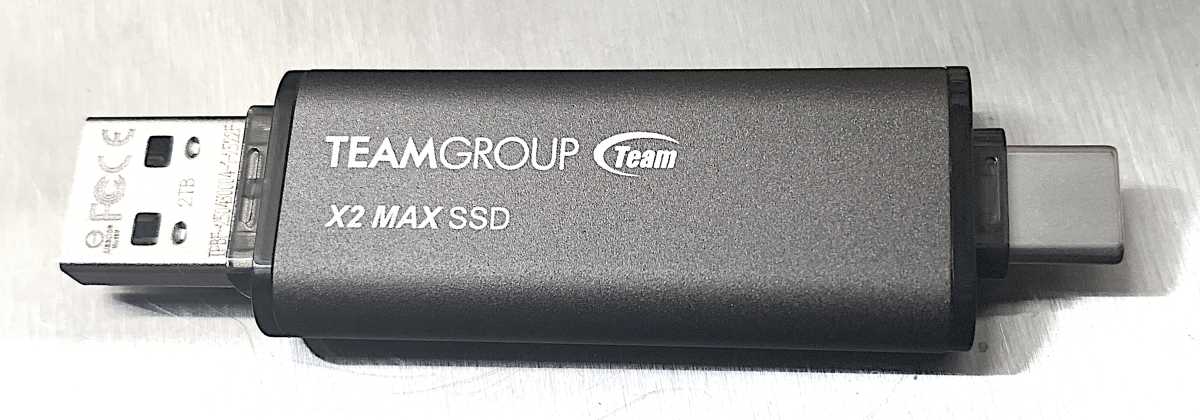
The drive uses NVMe internals to operate at 10Gbps USB 3.2 speeds, with sustained transfers maxing out at just under 1.1GBps. Teamgroup wasn’t inclined to discuss the controller or specific type of NAND involved.
However, given the excellent performance and ability to sustain reasonable transfer speeds over the long haul, I’m thinking state-of-the-art on both counts.
There’s not specific durability (TBW) rating, but Teamgroup warranties the drive for a full five years, a munificent rarity for any external SSD.
How much is the X2 Max?
While it isn’t slow like a commodity USB stick, the X2 Max isn’t cheap like one either. 1TB costs $70, and the 2TB version we tested is $130. But you get what you pay for. This is not your father’s USB stick — it’s a full-on 10Gbps SSD in a tiny form factor. For, that, the price is right on.
How fast is the X2 Max?
The X2 Max benchmarked extremely well for a 2TB PCIe 4.0 NVMe SSD in CrystalDiskMark 8, ATTO 4, and AS SSD 2. It also performed well in our main real-world transfers — most impressively, by not tanking as many SSDs do during super-long writes.
In point of fact, the X2 Max is easily the fastest thumb drive I’ve tested, and faster than many of its larger 10Gbps brethren.
While not light years better in CrystalDiskMark 8 than the Seagate Ultra Compact SSD and SK Hynix Tube T31, the X2 Max did best them overall in sequential transfers.
Unlike many SSDs, the X2 Max doesn’t tank during super-long writes.
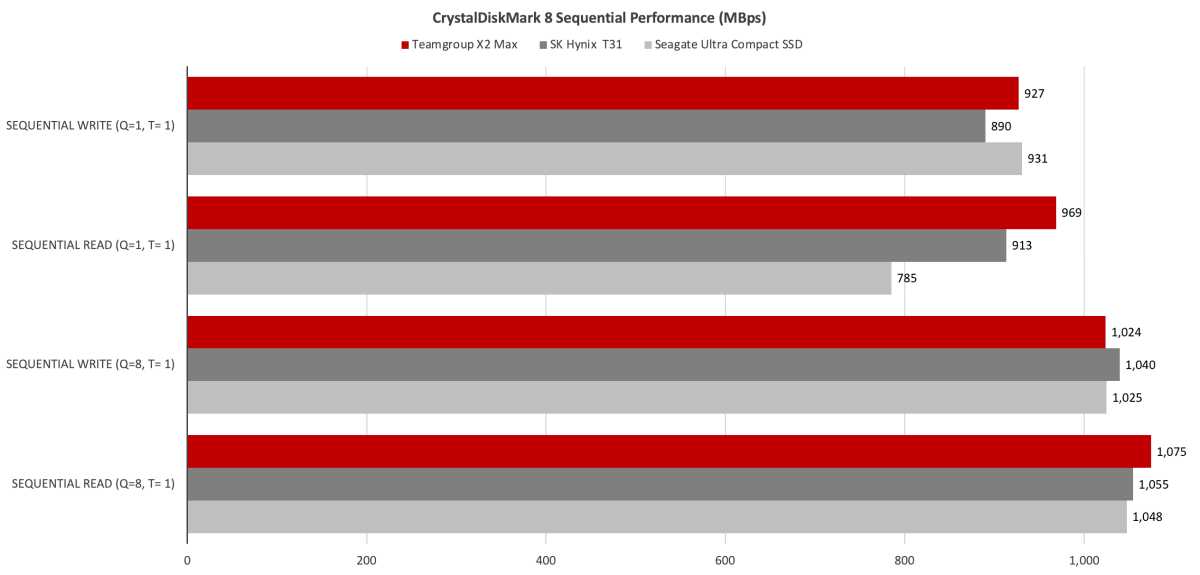
The one area where the X2 Max lagged behind its competitors was in random performance under CrystalDiskMark 8. Not disastrously so, but certainly noticeably — especially in the 32-queue write. Of course, I’m not aware of any real-world software that uses more than four queues.
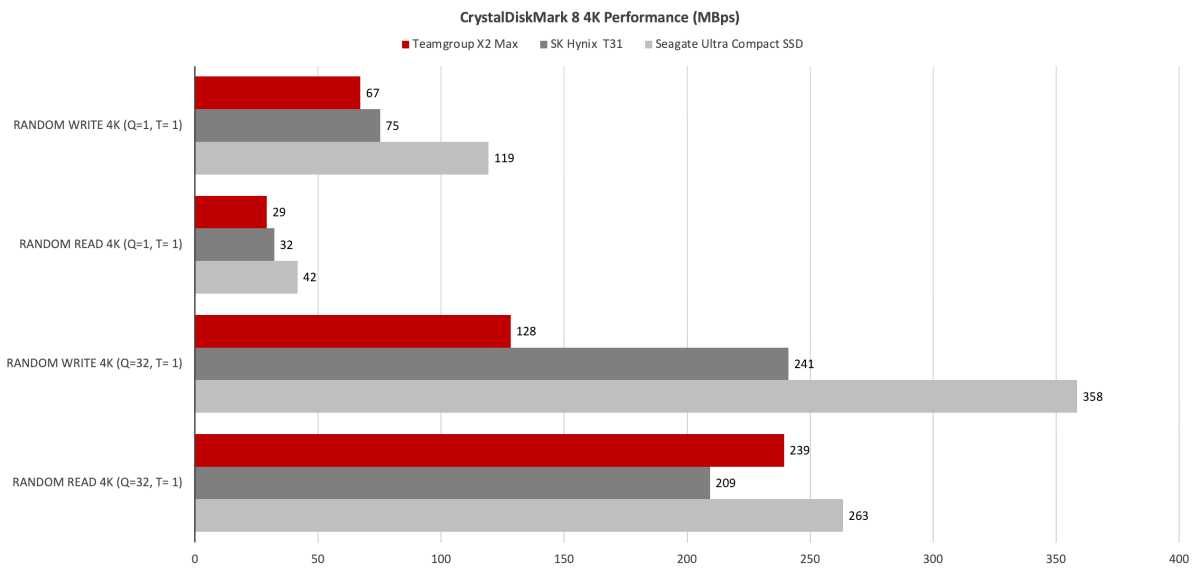
The X2 Max was back to shining in our 48GB transfers.
Note that there have been changes in the way I’m testing storage. Xcopy and our new favorite utility FastCopy are now used to show more of the true potential of the drives, and I’ve replaced the RAM disk with a 25GBps dual RAID 0 SSD array as the second drive in transfer tests. Read the “How we test” section at the end of the article for more info.
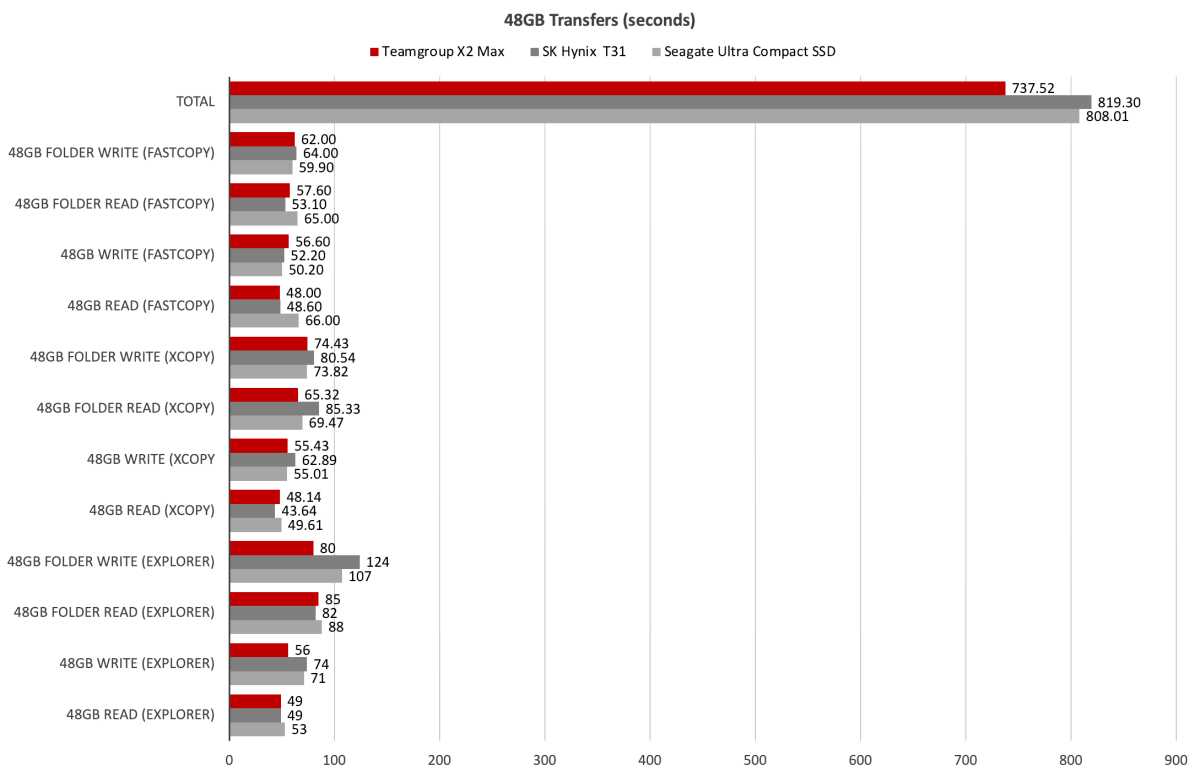
Where the X2 Max really impressed me was with its sustained write performance. During the 450GB write (using Windows Explorer), the X2 Max did slow down, but not by that much — dropping from around 850MBps to between 500MBps and 650MBps.
The same thing occurred when I wrote 950GB on top of that. Because of this, I’m not dead set on recommending the 2TB drive as the 1TB version (if it behaves similarly) likely won’t slow tragically either. Whatever you’re doing, Teamgroup… Keep on doing it.
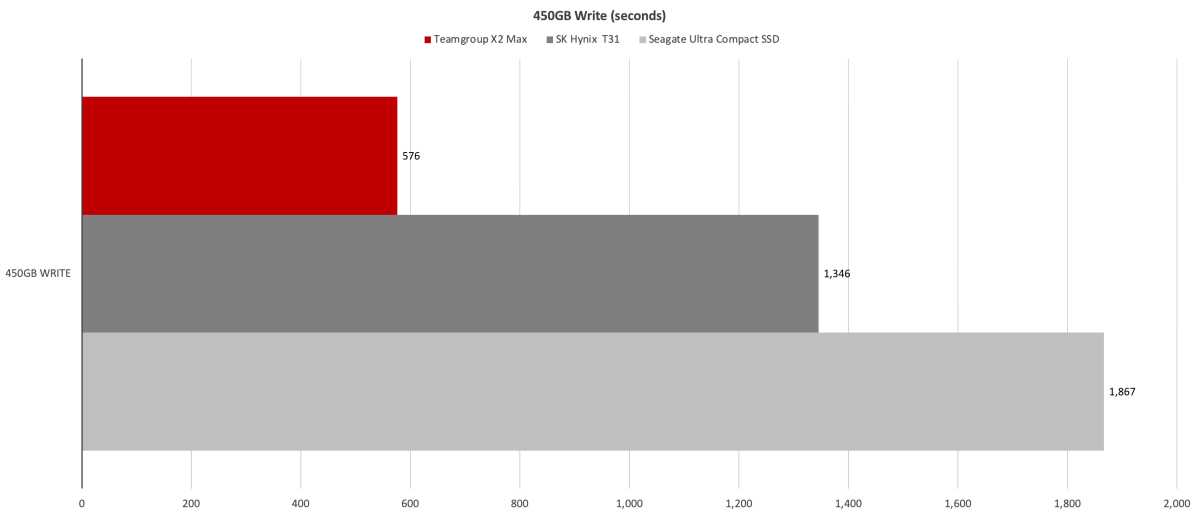
Below is visual confirmation that the X2 Max doesn’t slow to an absurdly low pace during long writes as some SSDs do.
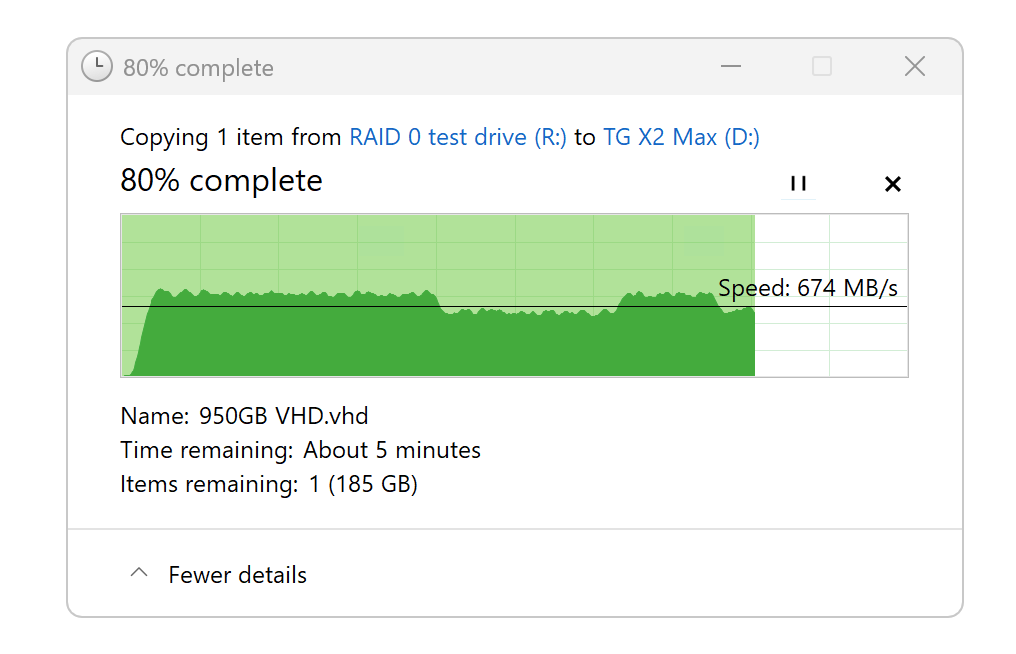
As you can see above, where the X2 Max really separated itself from the pack was in the super-long writes — long a bugaboo of thumb drives and less expensive SSDs. The upshot being that this drive is good for prosumers and average users alike.
Should you buy the X2 Max?
Absolutely. If you want small and fast — it’s almost impossible to beat. Even forgetting the small, the X2 Max is more than competitive speed-wise with far larger 10Gbps SSDs. It ain’t cheap, but the best rarely is. Good on ya’, Teamgroup.
How we test
Drive tests currently utilize Windows 11 24H2, 64-bit running off of a PCIe 4.0 Samsung 990 Pro in an Asus Z890-Creator WiFi (PCIe 4.0/5.0) motherboard. The CPU is a Core Ultra i5 225 feeding/fed by two Kingston Fury 32GB DDR5 4800MHz modules (64GB of memory total). Both 20Gbps USB and Thunderbolt 5 are integrated and Intel CPU/GPU graphics are used. SSDs involved in the test are mounted in a HighPoint 7604A 16x PCIe 5.0 adap
Zaloguj się, aby dodać komentarz
Inne posty w tej grupie

After years of waiting for new Nest smart gear from Google, it appear


By default, Windows only shows scroll bars when they are actually nee

If you always feel achy and uncomfortable after a long day at your de

Having plenty of memory in your PC is more important than ever, now t


If there was ever a good time to upgrade your gaming laptop to one wi

